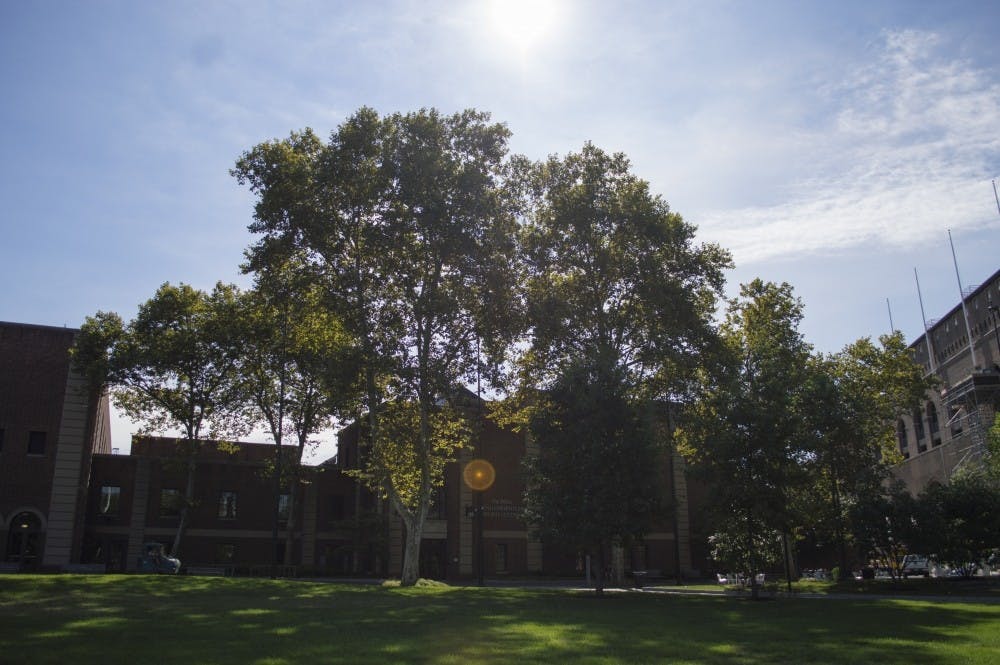Over the past five years, the number of courses that include a sustainability component has increased from 120 to about 300.
This uptick largely traces back to the Integrating Sustainability Across the Curriculum program — a program that aims to promote the topic of sustainability to as many disciplines and curricula as possible.
The program matches selected faculty members with undergraduate researchers who help them update their courses to incorporate environmental themes. Over the summer, faculty and students spend eight weeks working together to develop syllabi, assignments, and content.
Past courses have included "Environmental Ethics and Business," "Energy in American History, Preservation Through Public Policy," and "Design for Manufacturability."
“We want to make sure that the courses are available so that students can really learn about sustainability,” Director of Sustainability Dan Garofalo said. “This is just another way that we’ve really been successful in expanding these opportunities.”
Madeline Schuh, sustainability analyst at Penn Facilities and Real Estate Services, said that since the program started in 2012, 12 faculty members have developed entirely new courses and 29 have updated existing courses to include aspects of sustainability.
Overall, 24 students and 48 faculty members have participated.
Participating faculty come from many disciplines, including legal studies, engineering, biology, design, communications, economics, anthropology, and Germanic languages. Garofalo said that this diversity is natural.
RELATED:
Rankings differ drastically, so how sustainable is Penn really?
Fossil Free Penn wraps up a semester of activism with no policy changes but plenty of hope
Sixty students marched into the Trustees meeting on Friday calling for fossil fuel divestment
“Sustainability is one of those issues, like social equity, that cuts across every discipline almost,” he added.
Students agree that it is important to incorporate environmental issues into curricula.
“Education surrounding sustainability and the environment in general [is] something that the education system really lacks in providing,” said College sophomore Jacob Hershman, a student outreach coordinator for Fossil Free Penn.
Hershman added that the ISAC program is “a great way for the University to engage students not only in the act of educating themselves on the environment, but creating the avenues for the student populace at Penn at large learning about the environment and sustainability.”
However, Hershman said that while new sustainability initiatives such as ISAC are “impressive,” they are outweighed by Penn’s decision to invest in fossil fuels.

Many other universities also provide support for faculty to integrate environmental issues into their coursework. However, Garofalo said that Penn’s program is unique because of its focus on student researchers.
“[Student researchers] really get an in-depth view through a particular aspect of sustainability,” Garofalo said. “And sometimes it really changes what they think about for the rest of their academic career at Penn or what they do afterwards.”
Senior Lecturer Jane Dmochowski, who helped develop the ISAC program, emphasized that faculty also benefit from hearing a student's perspective on their curricula.
Engineering senior Cody Clouser, who was a student researcher for ISAC in 2016, added that the program “definitely helps build connections with the professors you’re working with.”
Students agree that the program opens their eyes to environmental issues at Penn.
“I was able to look around campus and see what things Penn was doing to become more sustainable as a campus,” Clouser said.



